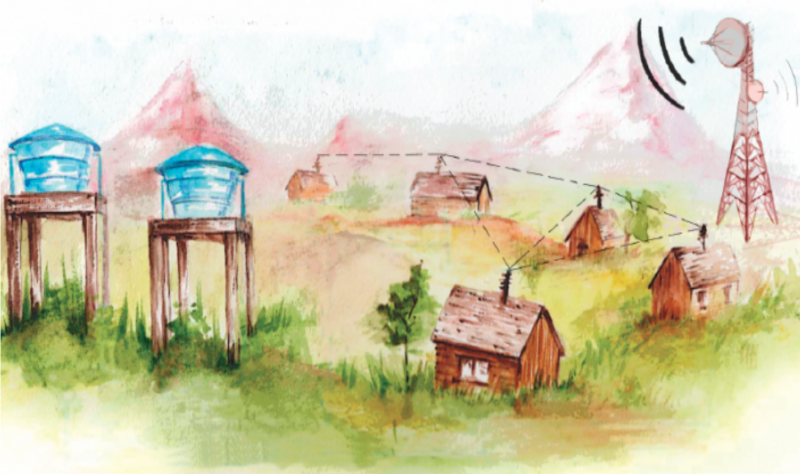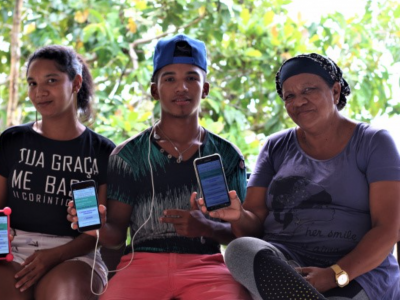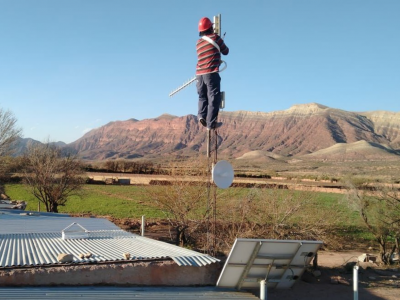
Imagery about community networks in comics, by IBE Brasil and used with permission.
This newsletter is part of the project titled, “Local Access Networks: Can the unconnected connect themselves?” developed by APC in partnership with Internet Society and Rhizomática, with support from Canada's International Development Research Centre (IDRC). It is republished here on Rising Voices as part of a partnership with APC.
Resources from past events
- The Internet Society held a virtual panel discussion on “How Internet Access Can Preserve Native Cultures”. Read more.
Community networks in news and blogs
- Nupef has done several interviews with community members from the community networks they support. Read more.
News on policy and regulation
- The Uganda Communications Commission has introduced a category for a licence for communal access. Read more.
- The ITU Council wants to hear directly “How can small/community/non-profit operators help in promoting the increase of internet connectivity?” Read more.
- KICTANet, Tunapanda Networks, Rhizomatica, APC and the Internet Society submitted comments to the Communications Authority of Kenya's “Public Consultation on the Draft Dynamic Spectrum Access Framework for Authorisation of the Use of TV White Spaces.” Read more.
- Zenzeleni and APC provided input to the South Africa Regulator, ICASA, which aimed at highlighting the possibility of non-exclusive use of the spectrum in the IMT700, IMT800, IMT2300, IMT2600 and IMT3500 bands, opening the possibility for community networks to create their own mobile data autonomous networks. Read more.
- The ITU has launched a new study paper on broadband and connectivity solutions for rural and remote areas where it recommends that regulators, among other things, “ease regulatory requirements for community network operators.” Read more.
- The COVID-19 Response Statement from the G20 Virtual Ministerial Meeting on 30 April 2020 mentions community networks as one of the means to expand connectivity: “Furthermore, digital capacities should be expanded, in particular by increasing broadband connectivity using fixed, mobile, and satellite technologies and by exploring non-traditional means of connectivity, such as community networks.” Read more.
- The Brazilian telecoms regulator ANATEL has explicitly and officially recognised community networks as an option for internet access in Brazil. Read more.
Research
- Nic Bidwell writes on community networks research she conducted with APC in 2018 where she shares her observations and specifically recommends a re-think of the way activists and technologists think of what is emphasised as value within community networks. Read more.
- A new feasibility study commissioned by the UNHCR assesses the potential of community networks within the context of forced displacement in East Africa. Read more.
- Research on a community cellular network project in the Phillipines shows household characteristics that influence participation and uptake, including household wealth, size of household and primary source of income and whether the household head is a woman. Read more.
Tools and toolkits
Funding opportunities
- Open Society Foundation is providing funding opportunities to collectives in Latin America related to tech for accountability and transparency, human rights and citizen security. Read more.
- Ford Foundation is supporting audiovisual productions for social justice. Read more.
- The IDFA Fund supports the production of video documentaries in developing countries, which could be used to fund community networks documentaries. Read more.



